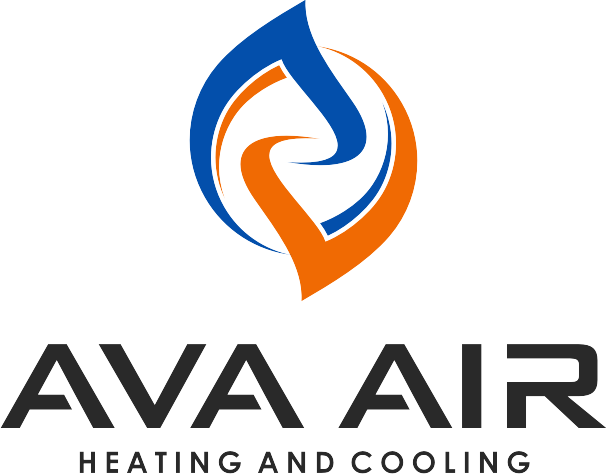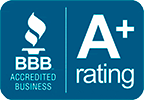
How to Tell If Your Heat Pump Needs Repair: Warning Signs to Watch For
Ask us about our service plans!
Heat Pump Repair When You Need It
A heat pump is one of the most efficient and versatile heating and cooling systems available for homeowners. It works year-round, keeping your home cool in the summer and warm in the winter by transferring heat rather than generating it.
However, like any HVAC system, heat pumps can develop problems over time. Knowing when you need heat pump repair can prevent minor issues from turning into costly breakdowns.
In this guide, we’ll explore the most common warning signs that indicate your heat pump requires professional attention, along with potential causes and solutions. By catching these issues early, you can extend the lifespan of your system, improve efficiency, and ensure year-round comfort in your home.



Unusual Noises Coming from the Heat Pump
A properly functioning heat pump should operate quietly, with only a low-level hum when running. If you start hearing strange noises, it could be a sign of a mechanical issue. Different noises indicate different problems:
Common Heat Pump Noises and Their Causes:
- Grinding or Screeching: This could mean that motor bearings are worn out or that there is an issue with the blower fan motor. Ignoring this can lead to complete motor failure.
- Clicking Sounds: Clicking noises when turning on the system might indicate a failing capacitor or electrical issue.
- Rattling or Vibrations: Loose hardware, screws, or panels could be causing the noise. This should be addressed before it leads to further damage.
- Hissing or Bubbling Sounds: These noises often signal a refrigerant leak, which can affect the system’s ability to heat and cool effectively.
Solution:
If you hear any of these noises, turn off the heat pump and call an HVAC professional to diagnose the problem before it worsens.
Reduced Heating or Cooling Efficiency
A heat pump that struggles to maintain the set temperature or takes longer than usual to heat or cool your home may be experiencing efficiency issues.
Possible Causes:
- Low Refrigerant Levels: Refrigerant is essential for heat transfer. If there’s a leak, the system will struggle to regulate temperature effectively.
- Clogged Air Filters: Dirty air filters restrict airflow, making the system work harder.
- Dirty Coils: The evaporator and condenser coils can accumulate dirt and debris, reducing efficiency.
- Aging System: If your heat pump is over 10-15 years old, decreased efficiency could be due to natural wear and tear.
Solution:
First, check and replace your air filters. If efficiency problems persist, schedule a professional inspection to check refrigerant levels, clean coils, and perform necessary repairs.
Short Cycling: The Heat Pump Turns On and Off Too Frequently
Short cycling occurs when your heat pump turns on and off more frequently than normal, preventing the system from completing a full heating or cooling cycle. This can lead to increased energy bills and premature wear on components.
Common Causes of Short Cycling:
- Thermostat Malfunction: A faulty thermostat may be sending incorrect signals to the system, causing it to turn on and off randomly.
- Dirty Air Filter: A clogged filter can cause overheating, triggering the system to shut down prematurely.
- Refrigerant Leak: Low refrigerant levels can cause the system to overheat and shut off before completing a full cycle.
- Oversized Heat Pump: If the unit is too large for the home, it may heat or cool too quickly, leading to frequent cycling.
Solution:
Check and replace your air filter. If the problem persists, have an HVAC technician inspect the thermostat, refrigerant levels, and overall system performance.
Heat Pump Blowing Cold Air in Heating Mode (or Hot Air in Cooling Mode)
If your heat pump is not providing the correct temperature output, it may be malfunctioning.
Possible Causes:
- Incorrect Thermostat Settings: Ensure your thermostat is set to the correct mode (heating or cooling).
- Reversing Valve Failure: The reversing valve allows the heat pump to switch between heating and cooling. If it’s faulty, the system may blow the wrong temperature air.
- Low Refrigerant Levels: Insufficient refrigerant can prevent the heat pump from extracting or releasing heat properly.
- Frozen Outdoor Unit: Ice buildup on the outdoor coil can block airflow and prevent proper heating.
Solution:
First, check the thermostat settings. If the problem persists, call an HVAC professional to inspect and repair the reversing valve, refrigerant levels, or defrost cycle.
Ice Build-Up on the Outdoor Unit
During cold weather, a thin layer of frost on the outdoor coil is normal. However, if the unit is covered in thick ice and not defrosting properly, it indicates a problem.
Causes of Excessive Ice Build-Up:
- Faulty Defrost Cycle: Heat pumps have an automatic defrost mode. If this cycle isn’t functioning, ice will accumulate and restrict airflow.
- Refrigerant Issues: Low refrigerant levels can cause freezing on the coils.
- Blocked Airflow: Debris around the outdoor unit can prevent proper heat exchange.
- Broken Fan Motor: If the fan isn’t operating correctly, the heat pump won’t dissipate heat effectively, leading to ice formation.
Solution:
Turn off the system and clear any debris around the outdoor unit. If ice continues to build up, schedule an HVAC service appointment to check refrigerant levels and defrost cycle functionality.
Higher Than Normal Energy Bills
If your energy bills have suddenly spiked without a change in usage, your heat pump may be working inefficiently.
Possible Causes:
- Clogged Air Filters: Restricted airflow forces the system to work harder.
- Leaky Ducts: Air leaks in the ductwork reduce efficiency by allowing heated or cooled air to escape.
- Aging Components: Older parts, like the compressor or motor, may be struggling to operate efficiently.
- Low Refrigerant Levels: The system compensates for low refrigerant by running longer cycles, increasing energy consumption.
Solution:
Regularly replace air filters and schedule routine HVAC maintenance to keep the system running efficiently. If the issue persists, a professional inspection can pinpoint leaks or worn-out components.
Strange Odors Coming from the Heat Pump
Unpleasant smells coming from your heat pump could indicate serious problems.
Common Heat Pump Odors and Their Causes:
- Burning Smell: This may indicate electrical issues or overheating components.
- Musty Odor: Mold or mildew buildup in the ducts or unit could be the cause.
- Rotten Egg Smell: While heat pumps don’t use natural gas, this odor could signal a problem with an adjacent gas appliance.
- Chemical Smell: A refrigerant leak can cause a strong, chemical-like odor.
Solution:
Turn off the system and call a professional immediately if you notice strong, unusual odors, as they could indicate hazardous issues.
Poor Airflow from Vents
If your heat pump is running but not distributing air effectively, there may be an airflow issue.
Potential Causes:
- Clogged Air Filter: A dirty filter can block airflow.
- Blocked or Leaky Ducts: Debris or leaks in the ductwork can restrict airflow to certain rooms.
- Malfunctioning Blower Motor: If the blower fan isn’t operating correctly, it won’t push air through the system efficiently.
Solution:
Start by replacing the air filter. If airflow remains weak, have an HVAC technician inspect the ducts and blower motor.
The Importance of Regular Heat Pump Maintenance
Routine maintenance is one of the best ways to prevent heat pump issues before they become major problems. Many homeowners wait until their heat pump starts malfunctioning before scheduling a repair, but by that time, the system may already be under unnecessary stress. Regular maintenance not only keeps your heat pump operating at peak efficiency but also extends its lifespan, reduces energy costs, and prevents sudden breakdowns.
Seasonal Tune-Ups
It’s recommended to schedule professional maintenance twice a year—once in the spring before cooling season and once in the fall before heating season. During a tune-up, an HVAC technician will:
- Inspect and clean the coils to improve heat exchange efficiency.
- Check refrigerant levels and recharge if necessary.
- Lubricate moving parts to prevent wear and tear.
- Inspect electrical connections to ensure safe operation.
- Test the thermostat for proper communication with the system.
- Clear the condensate drain to prevent water buildup and mold growth.
These preventative measures help ensure that your heat pump is ready to handle extreme temperatures, whether it’s the peak of summer or the dead of winter.
DIY Heat Pump Maintenance
While professional servicing is essential, homeowners can also take simple steps to keep their heat pump in good condition:
- Change Air Filters Regularly: A clogged air filter restricts airflow and forces the heat pump to work harder. Filters should be replaced every 1–3 months, depending on usage.
- Keep Outdoor Units Clear: Remove leaves, dirt, and debris from around the outdoor unit to maintain proper airflow.
- Monitor Thermostat Settings: Avoid drastic temperature changes, which can cause unnecessary cycling and stress on the system.
- Check for Ice Build-Up: If the outdoor unit accumulates excessive ice, it could indicate a defrost cycle issue that needs professional attention.
By combining professional tune-ups with homeowner maintenance, you can keep your heat pump running smoothly year-round, avoiding costly repairs and improving overall efficiency.
When to Replace vs. Repair Your Heat Pump
Knowing whether to repair or replace your heat pump can be a difficult decision. While minor repairs are common, there comes a point when continued servicing may not be cost-effective.
When a Repair Is the Right Choice
If your heat pump is experiencing issues but is still under 10 years old and has been well-maintained, a repair is usually the best option. Situations where repairs make sense include:
- A minor refrigerant leak that can be sealed.
- A faulty capacitor or relay that can be easily replaced.
- A thermostat issue that’s causing improper operation.
- A clogged air filter or dirty coil affecting efficiency.
If the repair cost is relatively low and the unit still has several years of life left, fixing the problem is a reasonable choice.
When It’s Time to Replace Your Heat Pump
If your heat pump is over 10–15 years old, it may be time to consider a replacement—especially if:
- Frequent Repairs Are Needed: If you’re calling an HVAC technician multiple times a year, the costs add up.
- Rising Energy Bills: Older heat pumps become less efficient, driving up your energy costs.
- Inconsistent Heating and Cooling: Uneven temperatures and longer heating or cooling cycles indicate a failing system.
- Expensive Major Repairs: If the repair cost is more than 50% of the price of a new unit, replacement is often the better investment.
The Benefits of Upgrading to a New Heat Pump
Modern heat pumps offer improved efficiency, quieter operation, and advanced features like variable-speed motors and smart thermostats. Investing in a new system can:
- Lower energy bills by up to 30%.
- Improve comfort with more precise temperature control.
- Reduce environmental impact with eco-friendly refrigerants.
- Provide better humidity control for healthier indoor air quality.
If you’re unsure whether to repair or replace your heat pump, consult with an HVAC professional for a system evaluation. They can help you determine the most cost-effective option for your home.
When to Call an HVAC Professional
Your heat pump is an essential part of your home’s comfort system, and catching issues early can prevent costly repairs or breakdowns. If you notice any of the warning signs mentioned—such as strange noises, short cycling, poor airflow, or high energy bills—it’s time to call a professional.
Regular maintenance, including filter changes, refrigerant level checks, and seasonal tune-ups, can help keep your heat pump running efficiently year-round. Scheduling an annual inspection with an HVAC professional ensures small problems don’t turn into big ones, keeping your home comfortable and energy costs low.
By staying proactive and addressing issues as they arise, you’ll extend the lifespan of your heat pump, improve energy efficiency, and enjoy uninterrupted comfort no matter the season.

